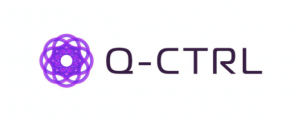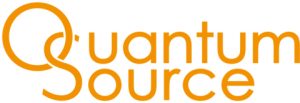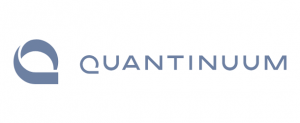Quantum News Briefs September 11: Q-CTRL integrates Fire Opal with four leading quantum computing hardware platforms to deliver unprecedented capabilities to end users • Quantum source raises $50M Series A funding to make scalable, useful quantum computing a reality • Quantinuum unveils accelerated roadmap to achieve universal, fault-tolerant quantum computing by 2030

Q-CTRL integrates Fire Opal with four leading quantum computing hardware platforms to deliver unprecedented capabilities to end users
 Q-CTRL, a global leader in quantum infrastructure software, announced September 10 that its performance-management software, Fire Opal, will be natively integrated into four of the world’s most advanced quantum computing platforms — IBM Quantum services, Rigetti Quantum Cloud Services (QCS®), Oxford Quantum Circuits (OQC) Cloud QCaaS devices, and Diraq’s Silicon quantum processors.
Q-CTRL, a global leader in quantum infrastructure software, announced September 10 that its performance-management software, Fire Opal, will be natively integrated into four of the world’s most advanced quantum computing platforms — IBM Quantum services, Rigetti Quantum Cloud Services (QCS®), Oxford Quantum Circuits (OQC) Cloud QCaaS devices, and Diraq’s Silicon quantum processors.These latest integrations demonstrate Q-CTRL’s ubiquity and industry leadership, backed by an unrivaled validated track record of its technology across diverse types of quantum computers. Building on the company’s integration with IBM Quantum services in December 2023, Q-CTRL has become a key partner in the sector’s focus on delivering commercial value to end users.
Q-CTRL’s performance-management software, Fire Opal, improves the usability and capability of quantum computing by minimizing errors and abstracting the details of how to operate hardware for peak performance. Errors in quantum computers constitute the biggest bottleneck in the technology’s advancement today. Managing these errors consumes a significant amount of time for hardware vendors and end users seeking to achieve meaningful results on the path to quantum advantage.
Quantum source raises $50M Series A funding to make scalable, useful quantum computing a reality
 Quantum Source, an Israel-based company developing, technology for powerful, cost-effective, practical photonic quantum computers, announced September 10 it has raised a $50M Series A investment round led by Eclipse, with participation from Standard Investments, Level VC, Canon Equity, as well as existing investors Pitango First, Grove Ventures, 10D, and Dell Technologies Capital. This brings the company’s total funding raised to over $77M. The capital will be used to enhance engineering capabilities and accelerate the commercialization of quantum solutions.
Quantum Source, an Israel-based company developing, technology for powerful, cost-effective, practical photonic quantum computers, announced September 10 it has raised a $50M Series A investment round led by Eclipse, with participation from Standard Investments, Level VC, Canon Equity, as well as existing investors Pitango First, Grove Ventures, 10D, and Dell Technologies Capital. This brings the company’s total funding raised to over $77M. The capital will be used to enhance engineering capabilities and accelerate the commercialization of quantum solutions.
Quantum Source was founded in 2021 by semiconductor industry veterans and serial entrepreneurs Oded Melamed, Gil Semo, and Dan Charash, and Professor Barak Dayan, a world-leading scientist in the field of quantum optics, who saw an opportunity to solve one of the biggest challenges of photonic quantum computing. The team has taken a novel approach that harnesses single atoms trapped on a proprietary photonic chip to allow deterministic photon generation and entanglement. This results in four orders of magnitude better efficiency compared to other implementations, making the Quantum Source system substantially more scalable, compact, and simpler to control.
Quantinuum unveils accelerated roadmap to achieve universal, fault-tolerant quantum computing by 2030
 Quantinuum has unveiled its roadmap to universal, fault-tolerant quantum computing by 2030 according to its September 11 news release. The roadmap materially accelerates the path to commercial quantum computing systems with the potential to unlock a trillion-dollar market (1) and enable AI to help solve some of the world’s most pressing problems. In parallel, Quantinuum in partnership with Microsoft announced a series of milestones and integrations.
Quantinuum has unveiled its roadmap to universal, fault-tolerant quantum computing by 2030 according to its September 11 news release. The roadmap materially accelerates the path to commercial quantum computing systems with the potential to unlock a trillion-dollar market (1) and enable AI to help solve some of the world’s most pressing problems. In parallel, Quantinuum in partnership with Microsoft announced a series of milestones and integrations.Quantinuum’s roadmap unveils its fifth-generation quantum computer, Apollo, which will be a fully fault-tolerant and universal quantum computer, capable of executing circuits with millions of gates, delivering scientific advantage and enabling a commercial tipping point.
The roadmap is built on the foundations of Quantinuum’s fully scalable quantum charge-coupled device (QCCD) architecture, including a universal gate set and high-fidelity physical qubits uniquely capable of supporting reliable logical qubits. For four years now, Quantinuum has remained steadfast in providing data along with peer-reviewed papers to show the science and engineering work behind these methodical advances.
Quantinuum also announced another milestone today in collaboration with Microsoft: achieving 12 logical qubits on the newly updated 56-qubit System Model H2 quantum computer, a 3x advance over the four logical qubits the companies announced in April. Microsoft also used the System Model H1 quantum computer to run the first ever chemistry simulation using reliable logical qubits combined with AI and HPC to produce results within chemical accuracy. Finally, Quantinuum and Microsoft have completed the integration of Quantinuum’s InQuanto™ computational quantum chemistry software package with Azure Quantum Elements, making it available to customers through private preview.



















